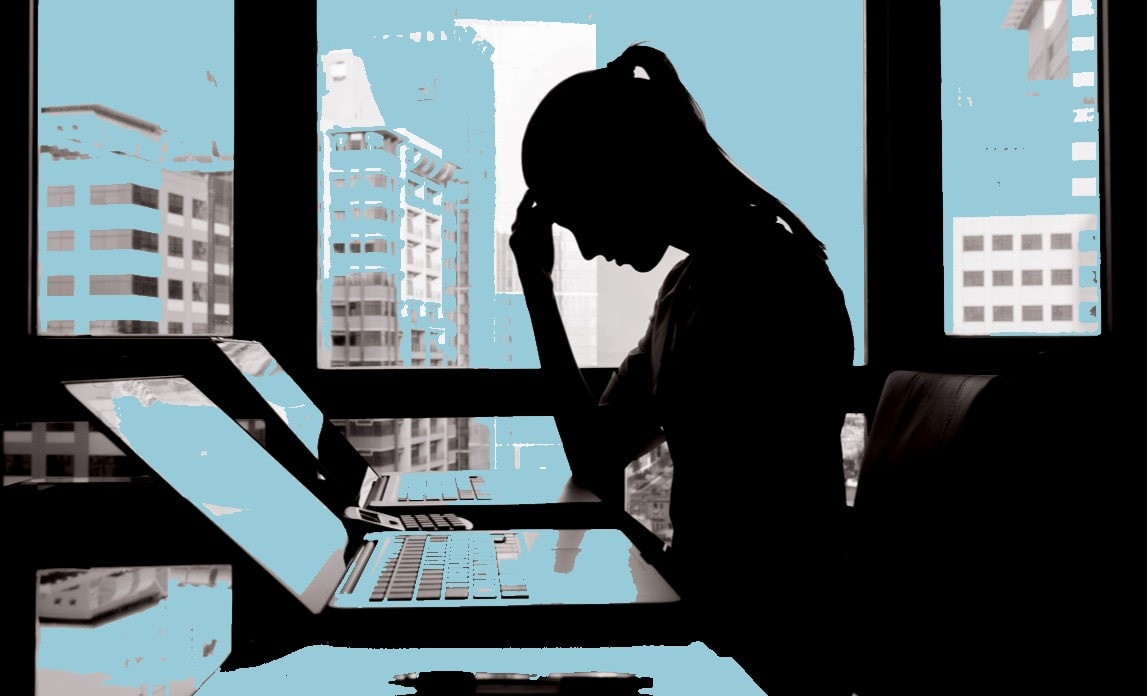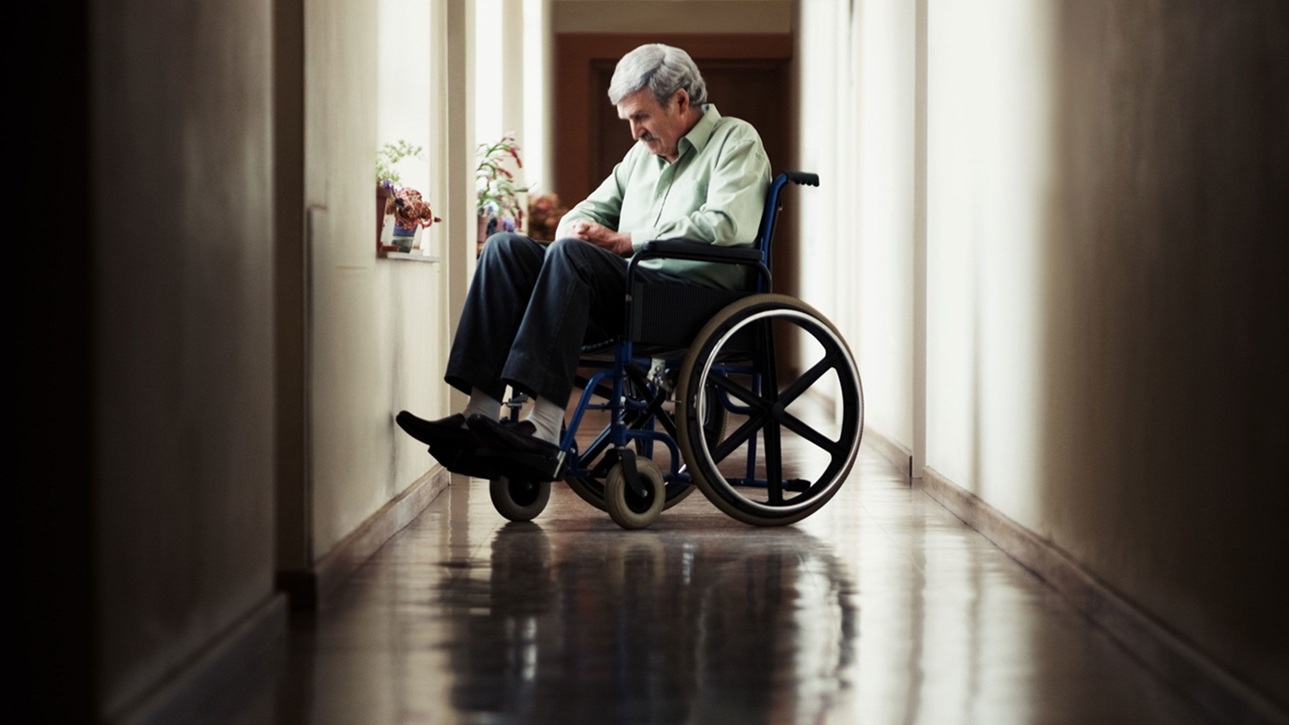Introduction
The subject article is a sequel to the article “Time for Corporate Introspection-COVID 19” by the same author.
Figuratively speaking, COVID19 took the world by its scruff and shook it well. Unlike classical martini for James Bond, it has left all segments of the society – the polity, executive, legislative, military, working and not-working populations and the common man – both shaken and stirred!
Like Sir Winston Churchill said, its adversity has given an opportunity for plenty of introspection. In the previous article on the subject, I had covered some aspects that the corporate world can do well to utilize this opportunity to review areas that could enhance productivity in post-COVID times. Having read my earlier piece, a friend of mine quizzed me as to what do we do to address the psychological challenges faced by employees during the COVID? The well-meaning, albeit challenging, the question from him led me to look at some aspects that would be discussed below. The discourse below is riveted to the MDQ (Million Dollar Question) that was posed.
How did the world fare?
How do we address the issue of pandemic related stress and mental health issues of employees in any organization? The mental health of employees is not a phenomenon induced by a pandemic. When a person joins any organization, however, structured or unstructured its is and however sensitized or otherwise, it is of employee mental health, he or she surrenders a portion of liberties and rights that in the personal domain he or she enjoys. We need not be experts to understand this. This very condition is the foundation for stress at workplace. In conditions of a pandemic or other disasters, the as-such-stress-filled atmosphere becomes complicated.
Ever since the UN came around, it’s the foremost advocate of health, WHO has been concerned about employee mental health. WHO notes that globally, an estimated 264 million people suffer from depression, one of the leading causes of disability, with many of these people also suffering from symptoms of anxiety. A recent WHO-led study estimates that depression and anxiety disorders cost the global economy US$ 1 trillion each year in lost productivity
WHO further notes the following as the risk factors affecting mental health of employees:
- Inadequate health and safety policies;
- Poor communication and management practices;
- Limited participation in decision-making or low control over one’s area of work;
- Low levels of support for employees;
- Inflexible working hours; and
- Unclear tasks or organizational objectives.
While each of the above risk factors mentioned has been the subject of study by psychologists, psychiatrists and management gurus, it suffices to say that none of their studies imagined a situation in which a pandemic of the dimension of COVID19 will stare at them squarely in the face. The pandemic evidently changed the employees’ work and in substantial terms, changed the environment from or in which they work.
Considering that economy and economic considerations drive the government policy in the world in the era of globalization, especially during this pandemic environment, we will look at some steps that the governments and corporates took to address employee mental health in the pandemic era.
USA
American Counseling Association reported that on 05 October, President Trump signed an executive order that would increase access to mental health services for those suffering from behavioural health issues aggravated by the global health pandemic. “My administration is committed to preventing the tragedy of suicide, ending the opioid crisis, and improving mental and behavioural health. The pandemic has also exacerbated mental and behavioural-health conditions as a result of stress from prolonged lockdown orders, lost employment, and social isolation,” said Trump. Six important provisions were made through the Presidential Order:
- “Providing crisis-intervention services to treat those in immediate life-threatening situations.
- Increasing the availability of and access to quality continuing care following initial crisis resolution to improve behavioral-health outcomes.
- Permitting and encouraging safe in-person mentorship programs; support-group participation; and attendance at communal facilities, including schools, civic centers, and houses of worship.
- Increasing the availability of telehealth and online mental health and substance use tools and service.
- Marshalling public and private resources to address deteriorating mental health, such as factors that contribute to prolonged unemployment and social isolation.
- Establishing a Coronavirus Mental Health Working Group to facilitate an “all-of-government” response to the mental health conditions induced or exacerbated by the pandemic, including issues related to suicide prevention”.
A similar provision was also made exclusively for veterans by the Trump Administration, keeping their service to US and the pandemic situation
The corporate sector in the US, realizing employee mental health especially in situations aggravated by the pandemic is critical to productivity, took similar initiatives. Blue Beam, a leading software company, for example, offers in-person bi-weekly yoga & Tai Chi classes, chair massages, and incentivized fitness challenges but had to alter their wellness programs due to COVID-19. During the pandemic, the company is providing free access to fitness videos with a CP membership, virtual team happy hours and game nights, on-demand webinars, and in-person sessions on mental health & wellness with various partners and the following fitness classes and programming
Citi Corp, for example, is providing a special compensation award to more than 75,000 colleagues globally to help ease the financial burden of the pandemic. They are also extending vacation carryover through the end of this year and their team of health and wellness experts are offering a line-up of virtual events and resources to help our colleagues and their families stay grounded and healthy, including online fitness classes, virtual personal training, meditation, and breathwork sessions and more.
Another corporate, Salesforce, launched several new wellness programs and initiatives in support of its employees during COVID-19. It provided access to free Employee Assistance Programs. EAP provides resources and immediate support (including free face-to-face or video conferencing counselling sessions) for a broad and complex body of issues affecting mental and emotional wellbeing, such as family problems, workplace stress, grief, anxiety, depression, addiction management, and alcohol and substance use.
Forbes reported that financial CEO Jeff Brown of Ally was quick to provide leadership, and reacted by showing care and generosity to their employees. Ally moved most of their workforce of 8,700 to work from home in just a few days, including hustling equipment to people who need it and getting them set up with the internet. Kathie Patterson, chief human resources officer, said, “This pandemic has shown how critical it is to embrace our humanity, be understanding and caring — and that holds true for companies, too. Make sure ‘human’ is prioritized in Human Resources. At Ally, we’ve been driven by what’s right — just like our mantra to ‘Do It Right’ — and we will do whatever we can to support the well-being of customers and employees”.
India
In his reply to a question on the subject of whether the government has conducted any study on the impact of COVID on the mental health of people, Minister of State for Health said that the government has not conducted any study to assess the impact of COVID-19 pandemic on the mental health of the population. “However, realizing the impact that COVID-19 may have on the mental health of the people, the government has taken a number of initiatives to provide psychosocial support during COVID-19,” Minister of State for Health Ashwini Choubey said in a written reply. The initiatives taken by the government include setting up of a 24/7 helpline to provide psychosocial support, by mental health professionals, to the entire affected population, divided into different target groups viz children, adult, elderly, women and healthcare workers, the minister said. It also includes the issuance of guidelines/advisories on the management of mental health issues, catering to different segments of the society, advocacy through various media platforms in the form of creative and audio-visual materials on managing stress and anxiety, and promoting an environment of support and care for all, he said.
Institutions like National Institute for Mental Health and Neuro Sciences (NIMHANS), working with the Ministry of Health, issued a detailed study that addressed various institutional mechanisms put in place to address the pandemic situation among the population.
When the Wuhan virus arrived early in 2020 showing signs of a pandemic, Prime Minister Modi was one of the few global leaders to take on the challenge of the pandemic calling upon the corporate world to respond to the situation with a great sense of commitment. The Prime Minister also called upon the distinct technological might that India has to help to find solutions to address and mitigate the pandemic situation.
Indian companies on their part joined their efforts in two dimensions: firstly, they contributed to a common fund created by the government as part of their CSR. Indian corporates also donated INR 5806 Cr for supporting migrant workers and for various social welfare initiatives of the government. Secondly, they instituted measures to address employee needs during the lockdown and the work-from-home phase necessitated by the pandemic.
Speaking of Individual corporates, Tata Tele Services introduced 24×7 counselling via a secure website, facility to speak with the counsellor on the telephone and face-to-face counselling at 1to1help’s premises. This counselling is offered on workplace relationships, sleep-related issues, anger management and parenting amongst other subjects. Other initiatives and actions taken by Tata Teleservices include a ‘Doctor on Call’ facility, which is extended to all employees and their families. Moreover, the well-being of an employee is checked and verified digitally, through a self-declaration form.
Government of India also recognized that the lockdown conditions may result in reduced salaries or retrenchment by companies. The resultant financial hardship would induce further stress on employees. Accordingly, the government issued a directory to companies not to resort to such practices. In order to alleviate the difficulties of companies, the government offered to pay 50 percent of salaries for three months as unemployment allowance to ESIC members. Of course, the governments initiative covers only 34.9 million workers (133.2 million members including family members) The Census of India Report 2011 places the total workforce at 397.9 million. With over a ninth of the workforce outside the purview of government reach out, a lot remains to be done to address the employee predicaments. As on date, the Ministry of Labor & Employment has sought feedback and suggestions for its Draft Rules under the Code on Social Security 2020 that aims to cover labour in unorganized sectors of the economy. This is a major step in India considering the large numbers that remain outside the social security apparatus through Employee Provident Fund, Insurance and other such extant regulations applicable to the organized sector.
Conclusion
Studies by Jeffrey Kahn and Alan Langlieb have found that productivity loss, absenteeism, job abandonment, and higher turnover are often directly linked to poor mental health. For example, research shows that people with symptoms of depression have a fivefold or greater increase in time lost from work compared to those without symptoms of depression. While this finding applies to normal times, it gains complexity in pandemic times where job losses, reduced pay and work-from-home are evidenced across the globe. It also needs little imagination to picture the state in less developed or least developed economies where social security structure is not commensurate to even normal times.
The issue of employee mental health during COVID times, whether by government, corporate or otherwise, therefore requires to be addressed through measures that combine financial, medical and humane outreach beyond the standard approach. By standard approach what we mean is a package of employee welfare measures that employers are mandated to provide to their employees by law. In other words, like Jeff Brown of Ally Financial did keep the “human” in mind while managing human resources.
COVID is also an opportunity for governments to extend the social security cover to especially the unorganized sector since the rebound of economy in post-COVID-19 is possible only when the unorganized sector has the energy to join the re-building drive.
As for management gurus and experts, it is time that they look at productivity as not a product of resources (including humans) but as the product of human endeavour. Market-oriented productivity tools will need human-oriented support measures. In order to do so, psychological support to employees should be devised through innovative and purpose-led programs that cover the employee as well as members of the family. The cases discussed above would provide ample food for thought in this direction.
Title Image Courtesy https://theswaddle.com/
Disclaimer: The views and opinions expressed by the author do not necessarily reflect the views of the Government of India and Defence Research and Studies
References:
“WHO | Mental health in the workplace.” https://www.who.int/mental_health/in_the_workplace/en/.
“President Trump Issues Executive Order on Behavioral Health.” 06 Oct. 2020, https://www.counseling.org/news/updates/by-year/2010/2020/10/06/president-trump-issues-executive-order-on-behavioral-health.
“President Trump Signs S.785 Into Law – counseling.org.” 23 Oct. 2020, https://www.counseling.org/about-us/about-aca/our-history/2020/10/23/president-trump-signs-s.785-into-law.
“7 Companies Who Care About Employee Wellness During COVID ….” 15 Jun. 2020, https://www.glassdoor.com/blog/companies-who-care-about-employee-wellness/.
“7 Companies Who Care About Employee Wellness During COVID ….” 15 Jun. 2020, https://www.glassdoor.com/blog/companies-who-care-about-employee-wellness/.
“7 Companies Who Care About Employee Wellness During COVID ….” 15 Jun. 2020, https://www.glassdoor.com/blog/companies-who-care-about-employee-wellness/.
“How One Company Is Taking Care Of Employees During COVID-19.” 06 Apr. 2020, https://www.forbes.com/sites/alankohll/2020/04/06/how-one-company-is-taking-care-of-employees-during-covid-19/.
“No study conducted to assess impact of COVID-19 on mental ….” 20 Sept. 2020, https://www.outlookindia.com/newsscroll/no-study-conducted-to-assess-impact-of-covid19-on-mental-health-govt/1939325.
“Mental Health in the times of COVID-19 Pandemic.” https://www.mohfw.gov.in/pdf/COVID19Final2020ForOnline9July2020.pdf.
“Coronavirus | Prime Minister Modi calls for COVID-19 ….” 15 Mar. 2020, https://www.thehindu.com/news/national/coronavirus-pm-modi-participates-in-saarc-videoconference-to-formulate-joint-strategy-to-combat-covid-19/article31074653.ece.
“ PM Modi asks for tech-driven solutions from people to fight COVID-19” https://economictimes.indiatimes.com/news/politics-and-nation/pm-modi-asks-for-tech-driven-solutions-from-people-to-fight-covid-19/articleshow/74667393.cms?utm_source=contentofinterest&utm_medium=text&utm_campaign=cppst
“How Indian companies are responding to COVID19 – CSRBOX.” https://csrbox.org/how-Indian-companies-responding-COVID19.
“Tata Teleservices comes up with new initiatives for ….” 14 May. 2020, https://www.hrkatha.com/news/tata-teleservices-comes-up-with-new-initiatives-for-employee-well-being-during-covid-19/.
“Don’t cut salaries or fire workers during lockdown — Modi govt issues advisory” https://theprint.in/india/dont-cut-salaries-or-fire-workers-during-lockdown-modi-govt-issues-advisory/386643/”
“Govt to offer 50% salary for 3 months as unemployment allowance to ESIC members who lost jobs amid pandemic, 21 Aug. 2020, https://www.timesnownews.com/business-economy/economy/article/govt-to-offer-50-salary-for-3-months-as-unemployment-allowance-to-esic-members-who-lost-jobs-amid-pandemic/640405.
ESI Scheme is now notified in 566 Districts in 34 States and Union Territories, which include 381 fully notified districts and 185 partially notified districts where scheme is notified in Districts Headquarters Area & in Centers. The scheme is yet to be implemented in Arunachal Pradesh and Lakshadweep. https://www.esic.nic.in/coverage
“PARTICIPATION IN ECONOMY – Ministry of Statistics and Programme Implementation.” http://www.mospi.nic.in/sites/default/files/reports_and_publication/statistical_publication/social_statistics/WM17Chapter4.pdf.
Jeffrey Kahn M.D., and Alan Langlieb, M.D., Mental Health and Productivity in the Workplace: A Handbook for Organizations and Clinicians.
“Mental Health As Part of Corporate Wellness Programs.” 16 Sept. 2020, https://www.corporatewellnessmagazine.com/article/mental-health-as-part-of-corporate.








